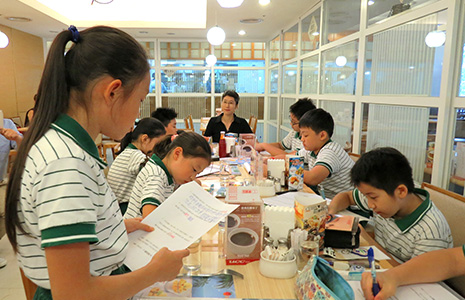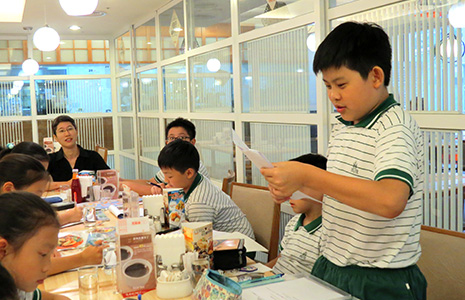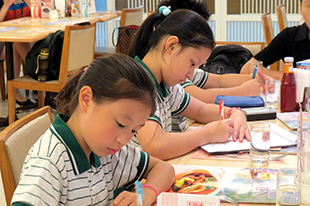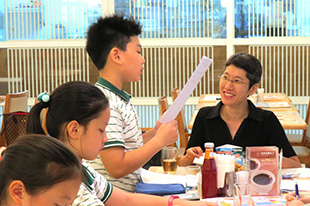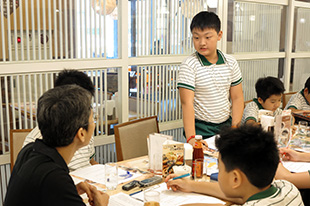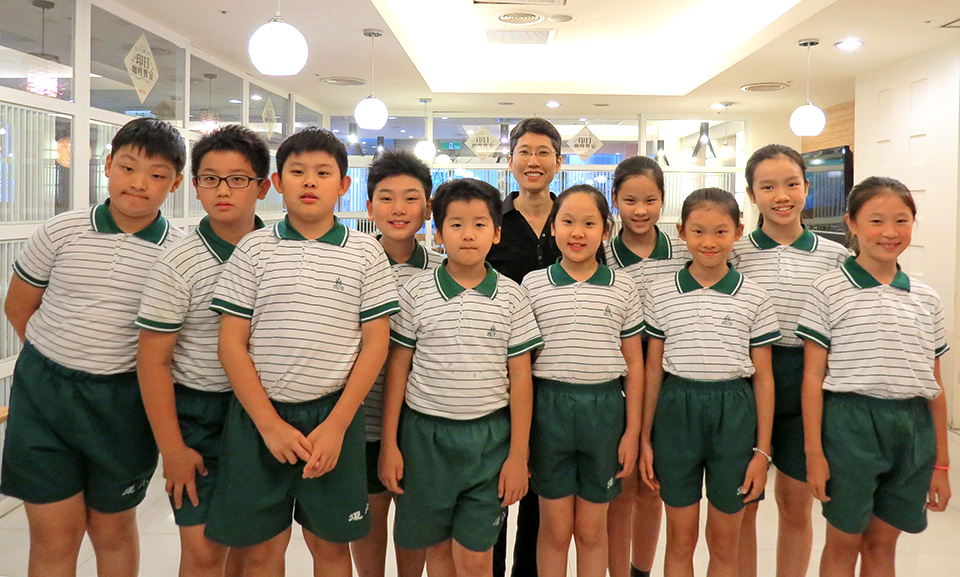| |
| |
|
|
|
|
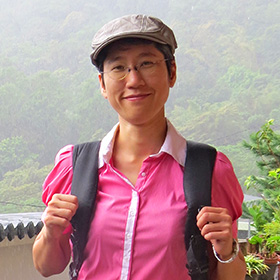 |
|
| |
Director Wen-ching Lin
| Education |
| • |
MA in Applied Media Arts, Institute of National Taiwan University of Arts |
| • |
BA in Drama, Chinese Culture University |
| |
|
| Experience |
| • |
Project-based director for Daai TV |
| • |
Freelance image film maker |
| |
|
| Works |
| • |
Deaflympics Documentary "Power in 2009" |
| • |
Documentary "Three Teachers, Two Mothers" (Eligible for judges’ highest rating director in 2006 Women Film Festival) |
Interview Date: August 3, 2015
Location: Royal Host Restaurant in Neihu |
|
| |
|
|
| |
| Documentary Sector Interviews |
1) Documentary Film Director
Q1: What was the reason that prompted you to shoot a documentary film on Deaf Women's Basketball?
A1: A very simple reason was: I like basketball. And because I am female, I am fond of women's basketball. Deaflympics 2009 in Taiwan was a very important sports event; it was also an important international event. The whole world would know Deaflympics was held in Taiwan. At that time I was considering what film to do next. I thought since I am so fond of women's basketball, I would do a documentary about Deaf Women's Basketball.
Q2: What was the significance of this documentary film on Deaf Women’s Basketball to you?
A2: This is a good question. I think this film helped me get to know another world. I am a person with normal hearing. Although it is inevitable that sometimes misunderstandings still occur between normal people, but at least there is no problem with the hearing. The players from Deaf Women's Basketball Team are hearing impaired. They live and communicate in very different ways. Because of this film I came to know another world, which to me, is of great significance.
| |
|
|
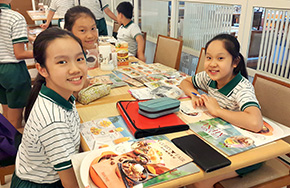 |
|
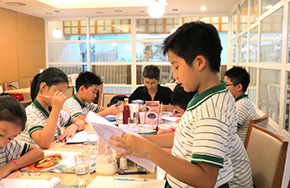 |
| |
|
|
Q3: How did you promote the story of Deaf Women's Basketball Team to attract more people's attention?
A3: Deaflympics was a very big event; ten people out of nine and a half knew about Deaflympics, but not so much about women's basketball. Through my friends in business corporations, we held film screening in their companies for people to watch. Whenever possible, I also tried to invite the two main characters, Pei Chou and Hsuan-Hsuan, to attend and share their stories. I promoted Deaf Women's Basketball Team by inviting people to watch the film.
Q4: What was the most difficult task you had to overcome while filming "Power in 2009"?
A4: I think the most difficult thing I had to overcome was "communication". I have normal hearing, so the easiest way for me to communicate is through speaking. But for my hearing-impaired friends, they have difficulty in oral communication, and it is also the biggest barrier for them. So often, I could not communicate with Deaf Women’s Basketball Team as freely as we do now. That was the most difficult thing I encountered during filming of this documentary.
Q5: Are there business corporations willing to sponsor Deaf Women's Basketball because of this film?
A5: Currently there are no corporate sponsors for Deaf Women's Basketball Team on a long-term basis, but I had a friend who sponsored a game of the DIBF Asia Pacific Cup because of this film. I certainly hope this film can help Deaf Women’s Basketball obtain corporate sponsorship, but so far not yet.
Q6: After filming this documentary, how can the general public help Deaf Women's Basketball?
A6: People can buy their book "Rookies, Fly Faster". The team members of Deaf Women's Basketball are working very hard. They established "Taiwan Deaf Women's Sports and Recreation Association" themselves. The purpose of this Association is to unite the power of hearing-impaired female athletes. I believe the most direct way to help them is to contact the Association. You can buy "Power in 2009" DVDs, because the proceeds of the DVD sponsor the cost of the Association. You can also buy their book "Rookies, Fly Faster"; this book's copyright sponsors the Association as well. As far as I know, the Association funds and supports deaf women's basketball. Buying DVDs or books are excellent ways. Moreover, you can also be there at the stadium to watch them play, to cheer them on, or even play a friendly ballgame with them to advance their skills.
Q7: What touched you the most from making this documentary?
A7: I am person with normal hearing, but Deaf Women's Basketball players are hearing impaired. People of two different worlds, with different life experiences, came together because of this film, and even became good friends who care for one another. This is what touched me the most.
Q8: Do you think this film about Deaf Women's Basketball has made good impacts on the society?
A8: Players of Deaf Women's Basketball Team took it one step at a time to achieve their dreams. I feel this serves as an inspiration to a certain degree for people who watch the film. Just like ordinary people, in the process of pursuing their dreams, the players may encounter obstacles and may want to give up. From the movie you can see that they wanted to quit, felt it was impossible, and even felt frustrated. I am sure everyone must have had similar experiences: you wanted to do something, you ran into difficulties, and so you thought: "I don’t want to do it anymore." If you continue, will you succeed? Not necessarily. But if you don't, you will certainly never reach your goal! This film illustrates that while they may not have achieved the best result, but what counts is throughout the process, the efforts they put in to realize their dreams, and that is the positive force I want to give to the audience.
Q9: Do you consider making this documentary film into a movie or TV program, so that more people can know about Deaf Women's Basketball?
A9: I certainly hope that it can be made into a movie or TV series, but the main consideration is the financial issue. It is only possible if there are corporations or family and friends who can sponsor.
Q10: After finish filming "Power in 2009", the Deaf Women’s Basketball Team continues its efforts and won the championship in the 2014 DIBF Asia Pacific Cup, and they are currently working towards the goal of the 2017 Deaflympics. Do you consider filming a sequel about the Team?
A10: If I make a sequel about Deaf Women's Basketball Team, I believe the situation will be much better than before, but I would still encounter similar issues, and it would still take a long time to shoot. Under such scenario, sponsorship from business or friends and family is required. If I can obtain sponsorship, I will continue to film them.
|





